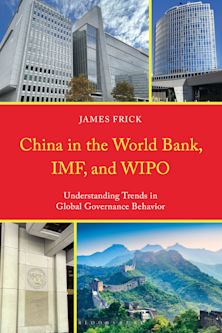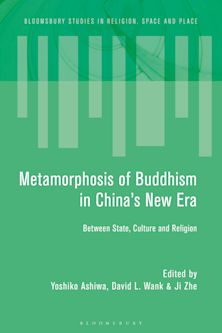Shanghai Mundane
Survival and Revival of Bourgeois Sentiments under Chinese Socialism
Shanghai Mundane
Survival and Revival of Bourgeois Sentiments under Chinese Socialism
Description
This book offers a new critical intervention into the studies of the paradox of Chinese socialism. Centering on the “unremodable” Shanghai bourgeoisie and middle class, the book brilliantly discovers Chinese society's persistent aspiration to bourgeois lifestyle and remarkable resistance to socialist ideology from the Mao era to the Xi era.
Shanghai Mundane offers a new critical intervention into the studies of the paradox of Chinese socialism. Through the lens of contested state-society relations, the book challenges conventional China Studies by repositioning Shanghai as the key to decode the protracted ideological warfare between socialism and capitalism. Based on significant archival, ethnographic, and theoretical evidence unearthed from the distinct cases of Shanghai bourgeoisie and middle class, Lei Ping discovers the city's persistent aspiration to bourgeois lifestyle and remarkable resistance to socialist ideology throughout the entire history of the People's Republic of China. Ping argues that despite the socialist remolding of capitalist industry and commerce, the post-1949 Chinese state failed to eradicate bourgeois heritage in the domain of everyday life in the Mao era, which ironically contributed to its controversial policy reversals in the post-Mao era, from Deng to Xi. What lies at the heart of the major intellectual conundrum, namely the survival and revival of bourgeois sentiments, is what Ping calls the “unremodable Shanghai mundane.” This captivating and provocative account sheds new light on understanding the larger questions as to the crisis-ridden practices of Chinese socialism and the raison d'être of the Chinese Communist Party in the twenty-first century.
Table of Contents
Part I: Socialist Transformation of Shanghai National Bourgeoisie
Chapter 1: Historical Rationale and Limitations of Mao's “Utilizing, Restricting, and Transforming”
Chapter 2: “Remolding” and “Remolded”: Socialist Transformation of Shanghai Capitalists in Literature and Cinema
Part II: Life and Death of Shanghai Longtang Everyday Life
Chapter 3: Survival of Shanghai Bourgeois Heritage and Urbanite Culture in the Mao Era
Chapter 4: Demolition of a Distinctive Shanghai Habitus in the Post-Mao Era
Part III: Cultural-Capitalist Spaces of New Shanghai Middle Class
Chapter 5: The Interior: Advertising Bourgeois Sentiments through Middle-Class Homeownership Dream
Chapter 6: The Exterior: Exhibiting Class Identity through Social Media Wanghong Daka
Epilogue: From “Cultural Self-confidence” to Economic Stimulus: Shanghai Mundane under Xi's Sino-centric Socialism
Appendix: Chinese Journals, Magazines, and Newspapers
Bibliography
Product details

| Published | 18 Sep 2025 |
|---|---|
| Format | Ebook (PDF) |
| Edition | 1st |
| Extent | 336 |
| ISBN | 9798216201496 |
| Imprint | Bloomsbury Academic |
| Illustrations | 14 b&w photos and 4 tables |
| Series | Challenges Facing Chinese Political Development |
| Publisher | Bloomsbury Publishing |
Reviews

ONLINE RESOURCES
Bloomsbury Collections
This book is available on Bloomsbury Collections where your library has access.


































